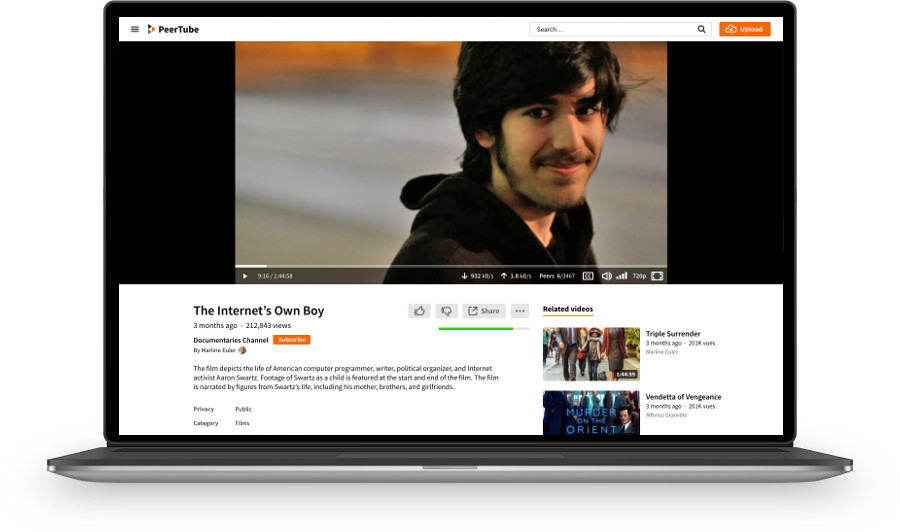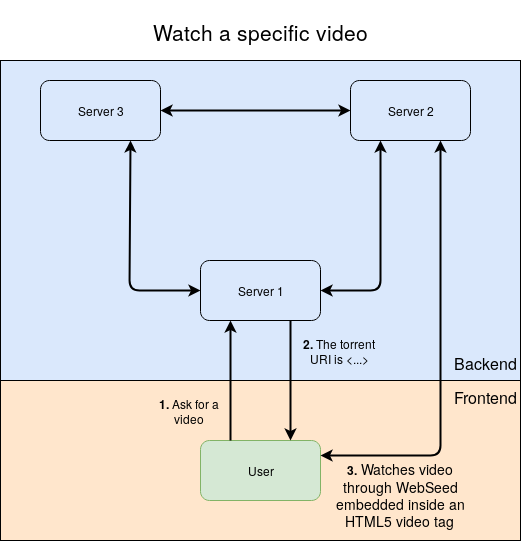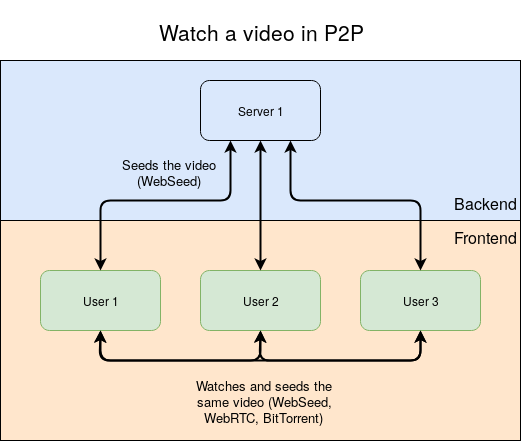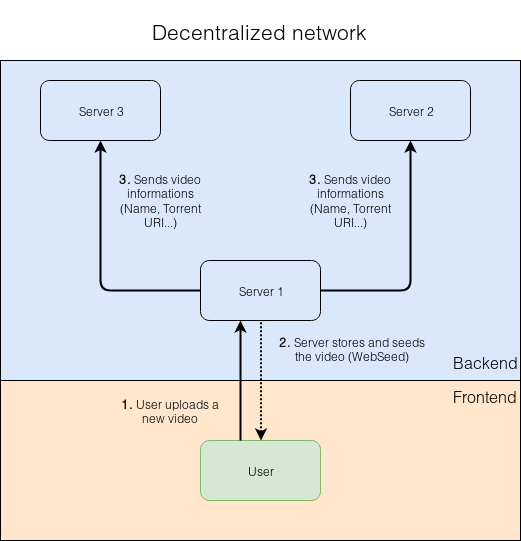PeerTube 1.0: video hosting without a data center and capital expenditures

The first production release of the decentralized PeerTube platform for the organization of video hosting and video broadcasting took place. PeerTube is an independent, lightweight, scalable alternative for YouTube, Dailymotion and Vimeo and uses real-time visitor browsers to create a content distribution network. Project developments are distributed on GitHub under the free AGPLv3 license .

The idea behind PeerTube is to create a technology that can combine disparate video servers into a common federated network with reciprocal information sharing, in which visitors participate in content delivery and can subscribe to channels and receive notifications about new videos.

PeerTube is based on the Peer-to-Peer principle . The creators explain their choice by the fact that hosting and network channels for video service is costly, so they shifted this load to many users. To solve the problem of bandwidth costs in cases where videos are becoming popular and can create a heavy load on servers and communication channels, PeerTube uses WebTorrent technology .

WebTorrent is a torrent client that runs on pure JavaScript and does not require installation of any plug-ins or extensions to the browser (although the browser is needed fairly modern, it won't work on IE11). For users, this means that if several people watch the same video at the same time, their browsers will send fragments of this video to each other. Thus, as the audience grows, the network capacity also grows.
Unfortunately, Habr still does not know how to recognize the PeerTube web player, so the video will be from YouTube:
The development of the first stable version of PeerTube - federated video hosting using the W3C standardized ActivityPub protocol and written on web technologies with the help of NodeJS (backend) and Angular (frontend) - for nine months has been a non-profit organization Framasoft . Software development and network deployment of several hundred copies of independent servers were funded by a successful crowdfunding campaign .
Each video server plays the role of a BitTorrent tracker, which stores user accounts of this server and their videos. Reception of data when viewing is carried out directly from the browsers of other visitors who view the same video. If no one is viewing the video at the moment, then using the WebSeed protocol , its return is organized by the server to which the video was originally uploaded.

In addition to redistributing traffic among viewers watching videos, PeerTube also provides servers created by authors for primary video distribution to cache other authors' videos from other network nodes, forming a distributed network not only from clients, but also from servers, which provides fault tolerance and network availability and content in it. And it also allows you to resist censorship, because on each node only its administrator determines all the rules for storing content. Anyone can raise their own server “with preference and waitresses” if he is not satisfied with the rules of any of the existing network nodes.
Do you like this technology? Or maybe you have already raised your server based on it? Write in the comments!
